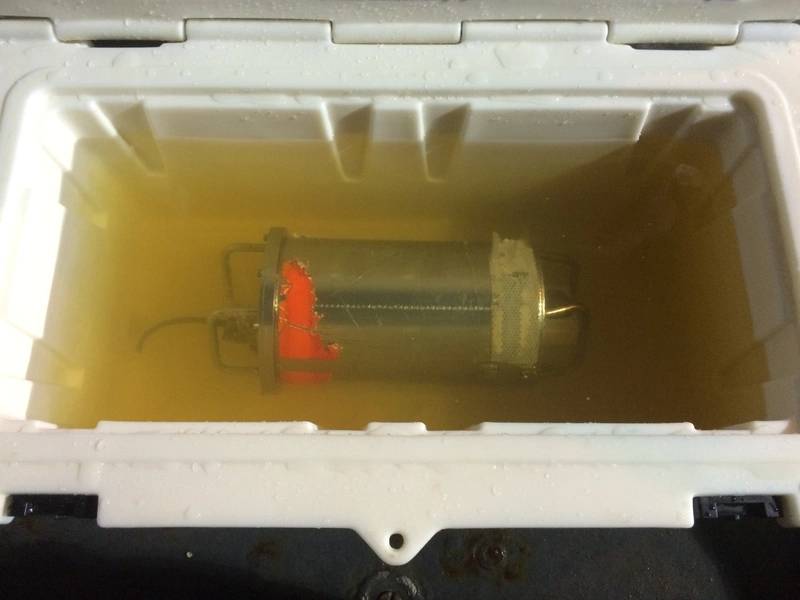26 Hours of Information Recovered from El Faro's VDR
A group led by the U.S. National Transportation Safety Board (NTSB) has gathered information from the recovered voyage data recorder (VDR) of sunken cargo ship El Faro to develop a detailed transcript of the sounds and discernible words captured on the ship’s bridge before sinking during Hurricane Joaquin in October 2015. In all about 26 hours of information was recovered from the VDR, including bridge audio, weather data and navigational data.
NTSB said numerous events leading up to the loss of the El Faro can be heard on the VDR’s audio, recorded from microphones on the ship’s bridge, though the recording quality is degraded due to high levels of background noise. At times the content of crew discussion is difficult to determine, and at others the content can be determined using audio filtering.

The VDR recording began about 5:37 a.m., September 30, 2015 – about 8 hours after the El Faro departed Jacksonville, Fla., with the ship about 150 nautical miles southeast of the city. The bridge audio from the morning of October 1, captured the master and crew discussing their actions regarding flooding and the vessel’s list. The vessel’s loss of propulsion was mentioned on the bridge audio about 6:13 a.m. Also captured was the master speaking on the telephone, notifying shoreside personnel of the vessel’s critical situation, and preparing to abandon ship if necessary. The master ordered abandon ship and sounded the alarm about 7:30 a.m., October 1, 2015. The recording ended about 10 minutes later when the El Faro was about 39 nautical miles northeast of Crooked Island, Bahamas. These times are preliminary and subject to change and final validation by the voyage data recorder group.
Families of the El Faro’s crew have been briefed about the results of the audition prior to the NTSB’s public release of the characterization of the audition.
The VDR group’s technical experts will continue reviewing the entire recording, including crew discussions regarding the weather situation and the operation and condition of the ship.
NTSb said it is unknown how long it will take to develop the final transcript of the El Faro’s VDR., as the length of the recording and high levels of background noise make transcript development a time consuming process.
El Faro’s VDR was recovered from the ocean floor August 8, 2016 and transported to the NTSB’s laboratory August 12. Information from the El Faro’s VDR was recovered August 15.
Related News

